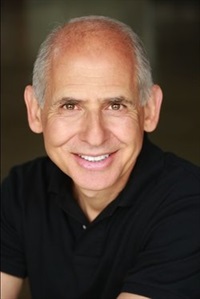EP17 Workshop 15 - ADHD: The 7 Clinical Types - Daniel Amen, MD, 12/13/2017, Video Stream More info »
EP17 Workshop 15 - ADHD: The 7 Clinical Types - Daniel Amen, MD, 12/13/2017, Audio Stream More info »
EP17 Workshop 15 - ADHD: The 7 Clinical Types - Daniel Amen, MD
- Average Rating:
- Not yet rated
- Topic Areas:
- Workshops | Attention Deficit Disorder (ADD) | Neuroscience | Psychotherapy
- Categories:
- Evolution of Psychotherapy | Evolution of Psychotherapy 2017
- Faculty:
- Daniel Amen, MD
- Course Levels:
- Master Degree or Higher in Health-Related Field
- Duration:
- 2:59:22
- Copyright:
-
Dec 10, 2017
- License:
- Never expires.
Tags: ADHD Neuroscience Psychotherapy
Description
Description:
Based on the brain scans and clinical histories of over 20,000 patients with ADHD, this workshop will help clinicians properly diagnose ADHD and subtype it into 7 different types. They will also learn the clinical symptoms, brain imaging patterns and treatments for each type.
Educational Objectives:
- List the 5 hallmark criteria for diagnosing ADHD.
- List the 7 types discussed in this workshop.
- List the treatments for each type.
*Sessions may be edited for content and to preserve confidentiality*
Credits
Faculty

Daniel Amen, MD Related Seminars and Products
Dr. Daniel Amen is a physician, double board certified psychiatrist and ten-time New York Times bestselling author. He is the Founder and CEO of Amen Clinics in Costa Mesa and San Francisco, California, Bellevue, Washington, Reston, Virginia, Atlanta, Georgia and New York City. Amen Clinics have the world’s largest database of functional brain scans relating to behavior, totaling nearly 100,000 scans on patients from 111 countries. Dr. Amen is a Distinguished Fellow of the American Psychiatric Association, the highest award they give members, and is the lead researcher on the world’s largest brain imaging and rehabilitation study on professional football players. His research has not only demonstrated high levels of brain damage in players, he also showed the possibility of significant recovery for many with the principles that underlie his work.


